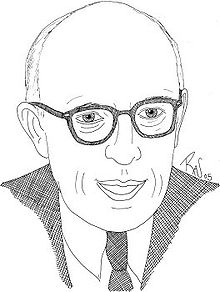René Dubos
| René Jules Dubos | |
|---|---|

René Jules Dubos
|
|
| Born |
20 February 1901 Saint-Brice-sous-Forêt, France |
| Died | 20 February 1982 (aged 81) New York, New York, U.S. |
| Nationality | French-born naturalized American |
| Fields | Microbiology |
| Institutions | The Rockefeller University (formerly The Rockefeller Institute for Medical Research) |
| Alma mater | Rutgers University |
| Known for | Isolation and first successful testing of natural antibiotics Coining the phrase "Think globally, act locally" |
| Notable awards |
E. Mead Johnson Award (1941) Albert Lasker Award for Basic Medical Research (1948) Pulitzer Prize in General Nonfiction (1969) Cullum Geographical Medal (1975) Tyler Prize for Environmental Achievement (1976) |
René Jules Dubos (February 20, 1901 – February 20, 1982) was a French-born American microbiologist, experimental pathologist, environmentalist, humanist, and winner of the Pulitzer Prize for General Non-Fiction for his book So Human An Animal. He is credited for having made famous Jacques Ellul's environmental maxim, "Think globally, act locally" (penser global, agir local).
Dubos devoted most of his professional life to the empirical study of microbial diseases and to the analysis of the environmental and social factors that affect the welfare of humans. His pioneering research in isolating antibacterial substances from certain soil microorganisms led to the discovery of major antibiotics. He performed groundbreaking research and wrote extensively on a number of subjects, including tuberculosis, pneumonia, and the mechanisms of acquired immunity, natural susceptibility, and resistance to infection. Aside from a period from 1942 to 1944 when he was George Fabyan Professor of Comparative Pathology and professor of tropical medicine at Harvard Medical School and Harvard School of Public Health, his scientific career was spent entirely at The Rockefeller Institute for Medical Research, later renamed The Rockefeller University.
In later years, Dubos explored the interplay of environmental forces and the physical, mental and spiritual development of mankind. The main tenets of his humanistic philosophy were: global problems are conditioned by local circumstances and choices, social evolution enables us to rethink human actions and change direction to promote an ecologically balanced environment, the future is optimistic since human life and nature are resilient and we have become increasingly aware of the dangers inherent in natural forces and human activities, and we can benefit from our successes and apply the lessons learned to solving other contemporary environmental problems.
...
Wikipedia
